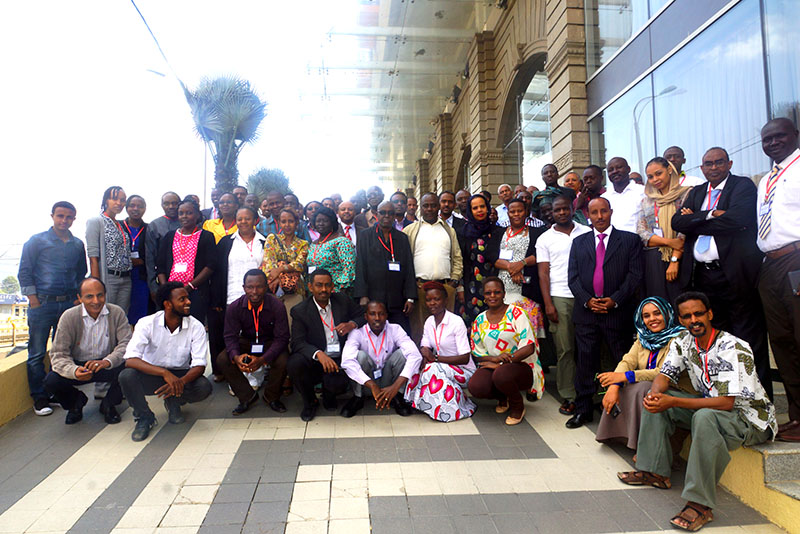03-04-2017, Addis Ababa, Ethiopia – Members of the National Tuberculosis and HIV Programs from the Intergovernmental Authority on Development (IGAD) Member States together with UNHCR, ARAA and Kenya Red Cross Society are meeting from April 3-4, 2017 in Addis Ababa, Ethiopia to consult on improving TB and HIV diagnosis, treatment and health information and supply management services in refugee settings within the IGAD region.
Other participants include those from Drug Supply institutions, Health Information Management and Primary Health Care implementers from the refugee settlements.
The IGAD region has a significant number of refugees in its member states most of whom are recipients of a significant number of refugees annually therefore its Member States have the mandate to provide medical care, among many others provisions.
IGAD through the support of Global Fund and German government and other partners will continue to work with different stakeholders to make HIV and TB diagnosis, screening, availability and consistency of drugs available in the region.
“ Refugees remain on top of IGAD’s agenda and priority as recently showcased at the IGAD Special Heads of State Summit on Refugees hence we are committed and dedicated to mobilizing resources to address the needs of our people like specialized care in HIV and TB and other health services. We will continue to engage and coordinate with our implementers for positive and great achievements” noted Ms. Fathia Alwan, the Program Manager – Health and Social Development during her opening remarks.
IGAD in partnership with its Member States and implementing partners recommend that; gene Xpert be the initial diagnosis TB testing for refugees with an even distribution within the IGAD region as well ensure better tracking of TB and HIV service data captured in the national information systems and how best to improve national HIV and TB programs linkages with refugee health systems.
Benefits of the above will lead to multi-drug resistance, availability of HIV testing, uninterrupted ARV and anti TB drugs in the refugee set up as well as improve national capacity and management of national HIV and TB programs, health information and supply chain systems.
The participants most of whom work directly with the people affected will also devise means of, improve drug and disease sensitization not forgetting nutrition interventions for the prevention and treatment of moderate acute malnutrition and for people living with HIV/AIDS and those on TB treatment.

